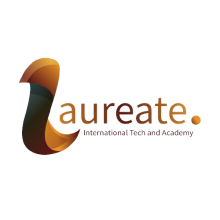Professional Accelerated Route in Nursing (PAR) - Denmark Pathway
English
Last updated
Mon, 10-Feb-2025
Programme Description
The Professional Accelerated Program (PAR) in Nursing - Denmark is meticulously designed to equip internationally educated nurses with the requisite knowledge, skills, and competencies for professional practice within the Danish healthcare system. This postgraduate-level programme addresses linguistic, cultural, clinical, and professional standards through a combination of theoretical modules and practical training. Graduates of the programme will be eligible to seek licensure as Registered Nurses in Denmark.
Programme Structure and Content
The programme comprises six modules, each carrying equal weight of 20 credits. These modules are strategically curated to ensure a comprehensive education in Danish nursing standards, integrating theoretical and practical elements essential for professional integration.
Module 1: Danish Language and Cultural Competence (20 credits)
Aim: To develop proficiency in the Danish language and foster cultural awareness necessary for effective communication and practice in Danish healthcare settings.
Core Content:
Intensive Danish language training (CEFR levels A1 to B2).
Medical terminology and healthcare-specific language in Danish.
Interpersonal communication and patient interaction within a Danish cultural context.
Understanding Danish societal values, cultural norms, and their impact on healthcare delivery.
Learning Outcomes:
Achieve B2-level proficiency in spoken and written Danish.
Demonstrate an understanding of cultural sensitivities in healthcare interactions.
Assessment:
Oral and written language proficiency examinations.
Cultural competence case studies and role-play exercises.
Module 2: The Danish Healthcare System: Structure, Policy, and Ethics (20 Credit)
Aim: To familiarise students with the organisational, legal, and ethical framework of the Danish healthcare system.
Core Content:
Structure and financing of the Danish healthcare system.
Patient rights, legal responsibilities, and healthcare legislation.
Ethical considerations and decision-making in nursing practice.
Comparative analysis of healthcare systems (Denmark vs. participants’ home countries).
Learning Outcomes:
Analyse and critically evaluate the structure and policies of the Danish healthcare system.
Apply ethical principles and legal frameworks in professional practice.
Assessment:
Critical policy analysis essay.
Group presentation on systemic challenges in Danish healthcare.
Module 3: Clinical Competence and Patient Safety (20 Credit)
Aim: To refine clinical skills and ensure adherence to best practices in patient safety and care delivery.
Core Content:
Advanced clinical protocols and procedures.
Patient safety frameworks and error prevention strategies.
Digital tools for healthcare documentation and communication.
Managing complex clinical scenarios in multidisciplinary teams.
Learning Outcomes:
Perform clinical procedures competently in accordance with Danish standards.
Implement patient safety strategies effectively in clinical practice.
Assessment:
Objective Structured Clinical Examination (OSCE).
Reflective portfolio documenting clinical learning and practice.
Module 4: Evidence-Based Practice and Research in Nursing (20 Credit)
Aim: To cultivate advanced skills in research, critical appraisal, and evidence-based practice for improving patient outcomes.
Core Content:
Research methodologies in nursing and healthcare.
Appraisal of quantitative and qualitative studies.
Translating research findings into practical applications.
Designing and evaluating interventions based on evidence.
Learning Outcomes:
Conduct critical appraisals of academic research.
Develop and implement evidence-based interventions in clinical settings.
Assessment:
Research proposal with a comprehensive literature review.
Critical appraisal report of a peer-reviewed study.
Module 5: Advanced Nursing Practice and Leadership (20 credit)
Aim: To strengthen leadership capabilities and advanced clinical decision-making skills essential for professional nursing roles in Denmark.
Core Content:
Theoretical foundations of leadership in healthcare.
Clinical reasoning and decision-making in complex patient cases.
Effective communication and conflict resolution in multidisciplinary teams.
Strategies for leading quality improvement initiatives.
Learning Outcomes:
Apply leadership principles to improve healthcare delivery.
Demonstrate advanced decision-making skills in clinical and managerial contexts.
Assessment:
Leadership project addressing a real-world healthcare issue.
Case study analysis of a multidisciplinary healthcare scenario.
Module 6: Professional Transition and Clinical Placement (20 Credit)
Aim: To facilitate the transition into professional nursing practice through supervised clinical placements and reflective learning.
Core Content:
Integration into Danish healthcare environments.
Professional behaviour and communication in clinical practice.
Reflection on personal and professional growth.
Guidance on licensure processes and career planning in Denmark.
Clinical Placement:
400 hours of supervised clinical practice in an approved Danish healthcare facility.
Learning Outcomes:
Adapt effectively to the clinical environment and cultural context of Danish healthcare.
Demonstrate competence in delivering patient-centred care.
Assessment:
Clinical placement evaluation by supervising mentors.
Reflective journal documenting professional experiences and insights.
Programme Outcomes
Upon successful completion, participants will:
1. Attain proficiency in Danish (minimum B2 level) and effectively communicate within professional healthcare settings.
2. Demonstrate a comprehensive understanding of the Danish healthcare system, including its legal and ethical dimensions.
3. Deliver safe, high-quality patient care aligned with Danish standards.
4. Apply evidence-based practice to enhance patient outcomes and advance professional nursing roles.
5. Lead and collaborate effectively in multidisciplinary teams.
6. Transition seamlessly into licensure and professional practice in Denmark.
Programme Accreditation and Recognition
The programme is accredited by the Danish Ministry of Education and Research and aligns with the professional standards set by the Danish Health Authority.
Admission Requirements
A Bachelor’s degree in Nursing (or an equivalent international qualification).
A minimum of one year’s clinical experience in nursing.
English language proficiency equivalent to IELTS 6 or higher.
